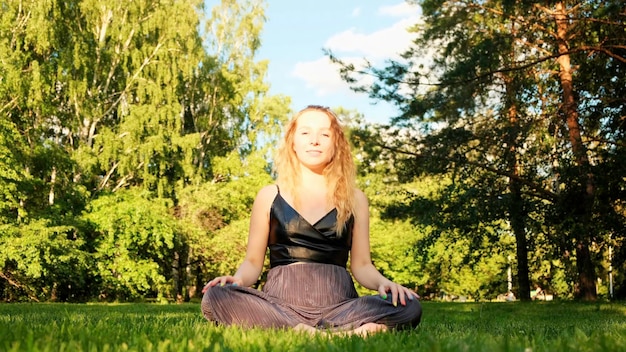Reduce Stress: 15-Minute Mindfulness for 20% Less Stress in 3 Months

A 15-minute daily mindfulness practice can significantly reduce stress levels by approximately 20% within three months by promoting relaxation, improving focus, and fostering a greater sense of emotional regulation and self-awareness.
Feeling overwhelmed? Discover how can a 15-minute daily mindfulness practice reduce your stress levels by 20% in 3 months, transforming your well-being with simple, effective techniques.
Unlocking Stress Reduction Through Mindfulness
In today’s fast-paced world, stress has become an all-too-familiar companion. But what if a simple, accessible practice could significantly diminish its impact? The answer lies in mindfulness, a technique that brings awareness to the present moment.
Mindfulness is more than just a buzzword; it’s a powerful tool that, when practiced regularly, can lead to measurable reductions in stress. Scientific studies have shown that even brief mindfulness sessions can have a profound effect on our mental and emotional well-being.

The Science Behind Mindfulness and Stress Reduction
Mindfulness works by engaging specific regions of the brain associated with attention and emotional regulation. Research suggests that regular practice can strengthen these areas, leading to a more balanced response to stress.
When we’re stressed, our bodies activate the “fight or flight” response, releasing hormones like cortisol. Mindfulness can help to dampen this response, promoting relaxation and reducing the physiological effects of stress.
- Reduces Cortisol Levels: Studies have consistently demonstrated that mindfulness practices can lower cortisol levels, a key indicator of stress.
- Enhances Focus and Attention: Mindfulness helps to train our attention, making it easier to stay present and avoid getting caught up in worries about the future or regrets from the past.
- Promotes Emotional Regulation: By becoming more aware of our thoughts and feelings, we can learn to manage them more effectively, reducing emotional reactivity.
- Increases Self-Awareness: Mindfulness fosters a deeper understanding of ourselves, including our triggers, patterns of thought, and emotional tendencies.
In conclusion, mindfulness provides tools for our brain to manage the impact of stress. Mindfulness can help people feel more in control. Daily practice increases the beneficial effects of mindfulness.
Creating Your 15-Minute Mindfulness Routine
Starting a mindfulness practice doesn’t require hours of meditation or a secluded retreat. A simple 15-minute daily routine can be enough to reap significant benefits. Here’s how to get started.
It’s important to find a quiet space where you won’t be disturbed. This could be a corner of your bedroom, a park bench, or even your office during a break. The key is to create a dedicated space for your practice.
Guided Meditations for Beginners
For those new to mindfulness, guided meditations can be incredibly helpful. These recordings lead you through a meditation, providing instruction and support along the way.
There are many different types of guided meditations available, so experiment to find one that resonates with you. Some focus on breath awareness, while others emphasize body scan techniques or loving-kindness practices.
- Body Scan Meditation: Focus on different parts of your body, noticing any sensations without judgment.
- Breath Awareness Meditation: Pay attention to the natural rhythm of your breath, noticing the rise and fall of your abdomen or chest.
- Loving-Kindness Meditation: Cultivate feelings of compassion and kindness towards yourself and others.
- Mindful Walking Meditation: Bring awareness to the sensations of walking, noticing the movement of your feet and the feeling of the ground beneath you.
Practicing mindfulness comes with an initial feeling of being uncomfortable. This can decrease over time by implementing the practice consistently.
Tracking Your Progress and Measuring Stress Reduction
To determine if your 15-minute daily mindfulness practice is reducing your stress levels, it’s essential to track your progress and measure your stress levels over time. Here are some effective methods.
Self-assessment tools can provide valuable insights into your stress levels. These tools often involve answering questions about your emotional and physical well-being.
It’s helpful to use these tools before you begin your mindfulness practice and then periodically throughout the three-month period. This will allow you to identify any changes or patterns in your stress levels.

Using Stress Scales and Questionnaires
Several validated stress scales and questionnaires can provide a more objective measure of your stress levels. These tools typically ask you to rate your experiences and feelings over a specific period.
Examples include the Perceived Stress Scale (PSS) and the Depression, Anxiety, and Stress Scale (DASS). These scales can help you to quantify your stress levels and track your progress over time.
By tracking the frequency and intensity of specific stress symptoms, you can gain a clearer understanding of how mindfulness is affecting your well-being.
- Journaling: Regularly write about your thoughts, feelings, and experiences to identify stress patterns.
- Mood Tracking Apps: Use apps to track your mood fluctuations throughout the day.
- Wearable Devices: Monitor physiological indicators of stress, such as heart rate variability.
Mindfulness requires taking time to learn and practice the skill, although it takes time to get the method correct, it can be significantly helpful in relieving stress.
Overcoming Challenges and Staying Consistent
Even with the best intentions, staying consistent with a mindfulness practice can be challenging. Life often gets in the way, and it’s easy to let your routine slip. However, with a few strategies, you can overcome these obstacles and maintain a consistent practice.
One of the most effective ways to stay consistent is to schedule your mindfulness practice into your day. Treat it like any other important appointment and make it a non-negotiable part of your routine.
Experiment with different times of day to find what works best for you. Some people prefer to practice first thing in the morning, while others find it more beneficial to meditate during their lunch break or before bed.
Dealing with Distractions and Mind Wandering
Distractions and mind wandering are common experiences during mindfulness practice. It’s important to remember that this is normal and not a sign of failure.
When you notice your mind wandering, gently redirect your attention back to your chosen focus, such as your breath or body sensations. Avoid getting frustrated or judgmental; simply acknowledge the distraction and return to your practice.
- Use Visual Aids: Incorporate calming images or objects into your meditation space.
- Practice in Nature: Connect with the natural world to enhance your sense of presence.
- Join a Community: Find support and motivation from others who are practicing mindfulness.
- Listen to Calming Music: Soothing sounds can help to create a relaxed and focused atmosphere.
Consistency is key, finding ways to work through some of the challenges that prevent it is important for feeling the positive impacts.
The Broader Benefits of Mindfulness Beyond Stress Reduction
While stress reduction is a primary benefit of mindfulness, the practice offers a wide range of additional advantages for your overall well-being. Mindfulness can enhance your relationships, improve your physical health, and foster a greater sense of purpose and meaning in life.
Mindfulness can improve your ability to listen attentively, respond with empathy, and resolve conflicts constructively. By being more present in your interactions, you’re better able to understand and connect with others.
Mindfulness can also enhance your capacity for gratitude and appreciation, leading to more fulfilling and meaningful relationships.
Mindfulness and Physical Health
The benefits of mindfulness extend beyond the mind and into the realm of physical health. Studies have shown that mindfulness practices can improve sleep quality, reduce chronic pain, and boost the immune system.
By promoting relaxation and reducing stress hormones, mindfulness can help to lower blood pressure and reduce the risk of heart disease.
- Improves Sleep Quality: Mindfulness can help to quiet the mind and relax the body, promoting restful sleep.
- Reduces Chronic Pain: Mindfulness can help to change your perception of pain, making it more manageable.
- Boosts the Immune System: Mindfulness can help to reduce inflammation and boost the immune system, making you less susceptible to illness.
- Enhances Emotional Intelligence: Mindfulness cultivates self-awareness and empathy, contributing to better emotional regulation.
Mindfulness offers different positive influences over people’s lives. People can make mindfulness a constant attribute that comes easily.
Real-Life Examples and Success Stories
To illustrate the transformative power of mindfulness, let’s explore some real-life examples and success stories. These individuals have incorporated a 15-minute daily mindfulness practice into their lives and experienced significant reductions in stress and improvements in overall well-being.
Sarah, a busy marketing executive, was constantly juggling multiple projects and deadlines. She found herself feeling overwhelmed and anxious, struggling to keep up with the demands of her job.
After learning about the benefits of mindfulness, Sarah decided to incorporate a 15-minute daily meditation into her routine. She began by using a guided meditation app and focused on her breath.
From Overwhelmed to Empowered: Personal Transformations
Within a few weeks, Sarah noticed a significant difference in her stress levels. She felt calmer, more focused, and less reactive to stressful situations. She also found that she was able to prioritize her tasks more effectively.
Over time, Sarah’s mindfulness practice became an essential part of her daily routine. She continued to expand her practice, exploring different types of meditation and attending mindfulness workshops.
- Improved Focus and Concentration: Mindfulness can enhance attention span and cognitive performance.
- Greater Resilience: Regular practice builds emotional resilience, helping individuals cope better with adversity.
- Enhanced Creativity: A calm and focused mind fosters creative thinking and innovative problem-solving.
- Increased Compassion: Mindfulness cultivates empathy and kindness towards oneself and others.
There are many more success stories of people utilizing mindfulness is small snippets of their day that can prove that it is a worthwhile practice.
| Key Point | Brief Description |
|---|---|
| 🧘♀️ Mindfulness Basics | Engage in present moment awareness for relaxation. |
| ⏱️ 15-Minute Daily Routine | Dedicated practice for measurable stress reduction. |
| 📉 Tracking Progress | Monitor stress levels to gauge mindfulness impact. |
| 💡 Consistent Practice | Overcome challenges, maintain mindfulness. |
[Frequently Asked Questions]
▼
Many people report feeling less stressed within the first few weeks of consistent practice. Significant stress reduction is often noticed after three months.
▼
15 minutes is often sufficient to make impactful change. People can practice in time increments as small as 5 minutes and still see benefits.
▼
Mindfulness is an activity that can be done indefinitely. It’s easy to make part of your routine and doesn’t cause negative side effects.
▼
Find a quiet space where you won’t be disturbed, then sit comfortably. Set a timer for 15 minutes and bring your awareness to you breath.
▼
Pay attention to how you’re feeling throughout the day. You may notice that you feel less stressed or more easily regain composure after becoming stressed.
Conclusion
Incorporating a 15-minute daily mindfulness practice into your routine can lead to a profound reduction in stress levels, as well as a variety of other benefits for your overall well-being. By committing to a consistent practice, you can transform your relationship with stress and cultivate a greater sense of calm, focus, and resilience in your life.





